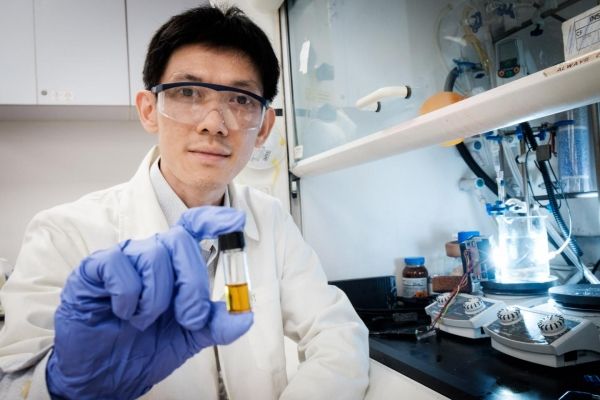Chemists at Nanyang Technological University, Singapore (NTU Singapore) have discovered a method that could turn plastic waste into valuable chemicals by using sunlight.
In lab experiments, the research team mixed plastics with their catalyst in a solvent, which allows the solution to harness light energy and convert the dissolved plastics into formic acid – a chemical used in fuel cells to produce electricity.
Reporting their work in Advanced Science, the team led by NTU Assistant Professor Soo Han Sen from the School of Physical and Mathematical Sciences made their catalyst from the affordable, biocompatible metal vanadium, commonly used in steel alloys for vehicles and aluminum alloys for aircraft.
When the vanadium-based catalyst was dissolved in a solution containing a non-biodegradable consumer plastic like polyethylene and exposed to artificial sunlight, it broke down the carbon-carbon bonds within the plastic in six days.
Read more at Nanyang Technological University
Image: NTU SPMS Asst Prof Soo Han Sen with the plastic-photocatalyst mixture, which when exposed to sunlight converts the plastic to formic acid, a useful chemical. (Credit: NTU Singapore)


